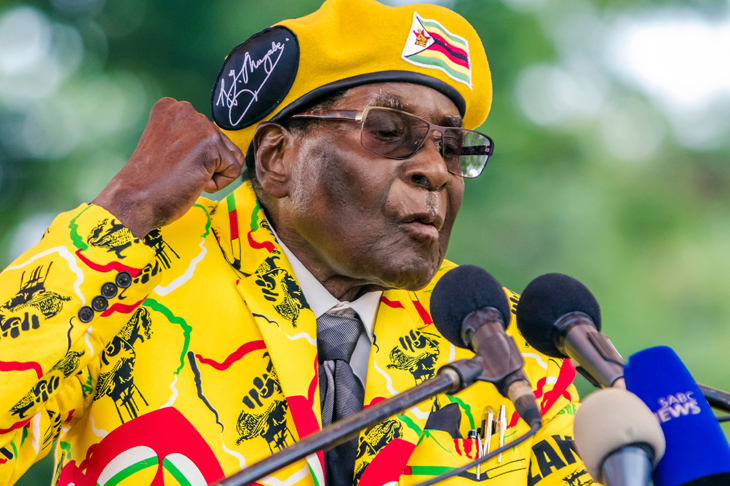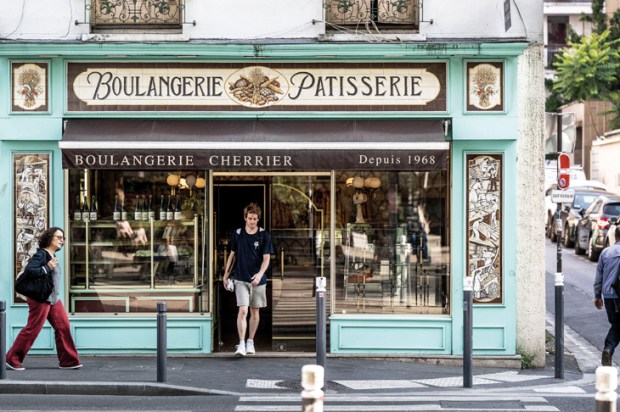I made three gigantic mistakes in my political career. Not just the usual stupid things that politicians do, like wasting money on the NBN, but three extra special, deluxe model, monumentally unforgiveable blunders. I will tell you what they were, in the hope that even at this late hour I might find absolution for my sins, and so that you can derive some appreciation of the full horror of my tragic mistakes and the overwhelming sense of guilt that still wracks my body when I think of them.
First, I voted for William McMahon to become leader of the Liberal party and hence prime minister of Australia, which led directly to our loss of government, the loss my own electorate and the ascension of Whitlam, which was the beginning of the downward spiral of this country into mediocrity.
Second, as minister for communications, I foolishly allowed the introduction of mobile telephones into Australia, which turned good and decent people into a race of open-mouthed zombies fixated on their little screens and the drivel that seeps out of them.
Third, I should have killed Robert Mugabe when I had the chance and when I could have saved Africa from its worst monster. Instead, I foolishly allowed him to live and to draw out his miserable life to its unlamented end last week at the age of 95. You see, I was the leader of the Australian observer team in 1980, supervising the independence elections in the then colony of Southern Rhodesia, now Zimbabwe. We had a meeting with Mugabe to get his views on whether the elections were free and fair and of course to get some idea of whether he might win. We were seated with Mugabe around a circular table on which were a few bottles of luke-warm sugary drinks to which we helped ourselves from time to time. Mugabe, ascetic that he was, toyed idly with his unopened bottle of Fanta, rolling it around the table but not partaking. I could not help feeling as I listened to his monologue that here was a monster waiting to take human form and that whatever the travails of Zimbabwe, surely it did not deserve Mugabe as its ruler. For a brief moment, I speculated on whether I could grab his bottle, smash it open and cut his throat. Perhaps the law would call it infantacide. But like all politicians I took the coward’s way out and did nothing except end our talk with a few platitudes about the new and glorious dawn that awaited Zimbabwe, which no-one in the room believed. Now, this talk of murder might seem a bit severe, but if I had whacked him there and then, it would have saved the Zimbabwean people from decades of murder, rape, torture, kleptomania and the destruction of one of the most potentially prosperous countries in the world. His North Korean henchmen murdered 20,000 Matabele tribesmen, so his own death before he unleashed this nightmare would have been a good investment. And what a fool I was; I could have been somebody; I could have been a contender. I could have been up there with Claus von Stauffenberg as a hero and who would deny, today, that it would have been much better for the human race if that brave man’s bomb had blown Hitler into a thousand pieces? But at least von Stauffenberg tried. I did not even do that. I know now that I can never write ‘Robert Mugabe- My Part in his Downfall’. All I could write would be: ‘Robert Mugabe- My Cowardly Part in his Rise to Power.’
But he leaves me with some abiding memories. During his murderous reign, the world turned a blind eye and a deaf ear to the horrors that Mugabe was inflicting on his own citizens and while he was driving his country into the dust. That must tell you a lot about the real standards of the so-called international community. In fact, I mark the time when I broke with the United Nations as the day it justified Mugabe’s attendance at a conference in Rome with the words: ‘Zimbabwe is a member state in good standing with the UN.’ I wonder what those in bad standing looked like. More importantly, just before Mugabe died, I launched Philip Ayres’ excellent book Private Encounters in the Public World which includes interviews with three of the protagonists of the Rhodesian issue, Mugabe, Kenneth Kaunda and Michael Manley, the former Prime Minister of Jamaica. Manley reminds us that the reason for the elections in 1980, and the reason I was there, not murdering Mugabe, was that the previous election had been such a sham, being conducted on two electoral rolls, one roll for everyone of any race, but a second roll exclusively for whites to vote, exclusively for white candidates. You could not excuse such a race–based franchise, or so the international community claimed. As Manley put it, it was a ‘some-men-one-vote, other-men-two-votes’ system. What Zimbabwe now got and we approved, was non-racist equality: one person, one vote. What a bitter irony, then, that after supervising an election to end racism in Zimbabwe, I now find the same racism being introduced here, with the so-called Voice to the Parliament for Aboriginals. We, too, will now have ‘some people, one vote’ meaning everyone on our electoral roll; but we will also have ‘other people, two votes’, because of the extra vote the Aboriginals will have, with a new electoral roll open only to them and for the election of only black candidates. It is an entirely racist proposal. Finally, if there is any humour to be found in this sad story, it is Margaret Thatcher’s excuse for not voting for her bête noire, Malcolm Fraser, who wanted to become secretary-general of the Commonwealth after undermining her on Rhodesia: ‘If we must have an African running the Commonwealth, I want a black one.’
Got something to add? Join the discussion and comment below.
Get 10 issues for just $10
Subscribe to The Spectator Australia today for the next 10 magazine issues, plus full online access, for just $10.
You might disagree with half of it, but you’ll enjoy reading all of it. Try your first month for free, then just $2 a week for the remainder of your first year.















Comments
Don't miss out
Join the conversation with other Spectator Australia readers. Subscribe to leave a comment.
SUBSCRIBEAlready a subscriber? Log in